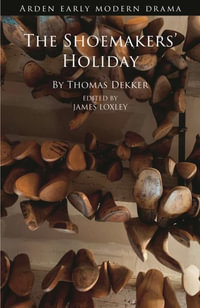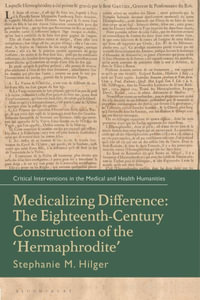In this wide-ranging study Michael O'Neill examines the phenomenon of the `self-conscious poem' - that is, a poem concerned with poetry or, more centrally if often connectedly, a poem that displays awareness of itself as a poem - in the work of the major Romantic poets: Blake, Wordsworth, Coleridge, Byron, Shelley, and Keats. The book freshly illuminates many famous lyrics and longer poems and revalues less regarded works such as The Excursion.
For O'Neill, self-consciousness is allied to the new status granted to poetry by the Romantics. His closely attentive readings suggest that self-consciousness in Romantic poetry often accompanies
exploration of, even anxiety about, poetry's significance. Yet his emphasis falls on the imaginatively productive ends to which such exploration and anxiety are put. An extended coda looks at the bequest of Romantic self-consciousness to post-Romantic writers; it offers chapters comparing Yeats and Stevens, discussing later Auden's scepticism about poetry, and exploring the affecting intricacies of Amy Clampitt's `Voyages: A Homage to John Keats'. Throughout, O'Neill challenges recent accounts
of Romanticism by placing at the centre of his study poetry's imaginative and aesthetic value.
Industry Reviews
`A helpful chapter on Wordsworth pursues the theme of Romantic anxiety about language, and again seeks to halt the deconstructionist mill that would grind everything to ironies of the same size and shape. ... The two chapters on Shelley are also substantial and intriguing. ... Romanticism and the Self-Conscious Poem is a subtly intriguing, clear-eyed, and always powerfully argued book. It offers a series of cogent, involved discussions around a
ltitle-explored aspect of Romantic poetry, and in agile, elegant prose to boot.'
Richard Marggraf Turley, University of Wales, Aberystwyth, Romanticism
`Micheal O'Neill's book collects his work on Romantic and post-Romantic poetry over the last decade. Reassembled in ten chapters they form a beautifully interlinking sequence which gathers to itself greater significance as the book progresses ... Pleasure is a powerful and revitalising force in this volume ... O'Neill's reading untangles without unravelling. Each close analysis is superbly concentrated ... Particularly valuable is the precision with which
the book marks differences between Romantic voices ... Fostered by scholarship and slow time Romaticism and the Self-Conscious Poem is a searching work of lasting value. It is in all senses a masterpiece.'
Jane Stabler, The Wordsworth Circle Autumn 98.
`O'Neill's method is to let the poetry do the talking ... O'Neill's readings have superb emotional feel and technical know-how: they confirm that criticism has a highly developed, flexible, and above all capable language for talking about poetry - a language that has too often been shamefully neglected or disregarded. If you want to be reminded of that language at its most intricate and profitable - not to mention pleasureable - this is the book for
you.'
Nicola Trott, ROES vol 50, no 200 (1999)
`Romanticism and the Self-Conscious Poem displays a refreshing desire to reassert the value of poetry, a desire to read poetry lovingly as poetry and not simply as another form of discourse caught in the ideological webs. O'Neill broadens the sense of poetry's alertness to itself and to experience. His trust in poetry is affecting, and he communicates that trust feelingly. Embracing poetry rather than debunking it, O'Neill sloughs off the illusion of
disillusion and attempts simply to read, to read clearly, and to say what he has read.'
Thomas Pfau, Review 21, 1999
























